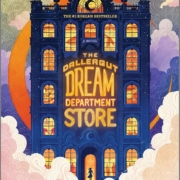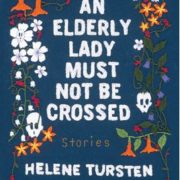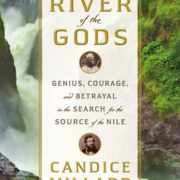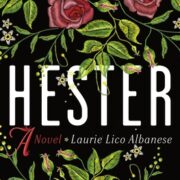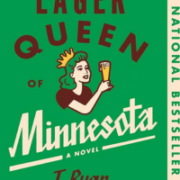The Vaster Wilds by Lauren Groff
We meet “the girl” as she runs through a land that’s “innocent of story.” She thinks not of what‘s being left behind, lest she “die of grief.” She’s fleeing a settlement where even the good have become awful. Through snow and ice she runs, “speed and fear” constituting her sails.
We never learn of the girl’s name. The girl doesn’t know it either. In The Vaster Wilds, Lauren Groff’s harrowing new novel, there’s plenty left unnamed. Though the settlement from which she flees is unidentified, think of Jamestown during “the starving time” to provide some orientation. And just as the Old World meeting the New World provides an overriding theme of disorientation, so too does the struggle of the immediate. The girl is in trouble, and we are with her every step of the way.
Wise beyond her years, she seems to know that survival requires her to suppress any emotion that may lead to a loss of control, thus hastening her demise. “O do not cry, girl,” she tells herself upon meeting the dead eye of a frozen fish that’s just below the river’s ice, “its blue lips pressed in a kiss to the surface,” a fish she subsequently devours. Being of such a low station does truck one advantage: there’s scant much to her past she wishes to hold. “A nothing is no thing, a nothing is a thing with no past.”
Nonetheless, she’s ghosted by the few individuals who extended her kindness. And she aches when thinking of the toddler with whom she was charged, it being not a “labor of serving but rather a labor of adoration, and thus almost no work at all.” What she clings to now are the few inanimate objects vital for survival, personifying them in turn. “The hatchet was blunt but faithful, the knife was two-faced and angry but always ready…”
Wilderness survival is new to the girl, but basic survival is not. For it’s not just the natural world that’s red in tooth and claw. Predators, she knows, live among the civilized as well. Still, it’s civilization she again seeks. She has a vague sense that there are French to the north and a great ocean to the west that may harbor an English ship. (She’s already experienced the ocean to the east.) Until then, it’s the monotony of daily survival along with moments of abject terror.
It’s not only man and beast she fears (more so the former than the latter), but also her “own small starved feverish self.” Onward she plods, equating nature’s vulnerabilities as her own: the exposed roots of an overturned tree, “tender as toothaches.” And she knows that those who dwell on this land should fear her too, as she carries the scourge of her civilization: disease.
There are fleeting moments of levity such as when the girl watches “a huge porpentine walk his bristles through the undergrowth with the weary pomp of a crowned prince.” But this is not a Robinson Crusoe tale. Nor is the girl becoming physically stronger like Buck in The Call of the Wild.
The reader can ponder much about the book’s themes. The story’s premise essentially has them jumping off the page. At times, Groff is pretty much stating them. Ordinarily this would be a touch annoying. Themes are good, stating them less so. But it works here because the reality of the unnamed girl out in the unnamed wild is such a stark one. The girl can’t help but think of the nature of dominion, what it meant back in England and the settlement, and what it means now out in the wild.
Or don’t ponder any of this at all and just follow the girl. Groff’s writing is vibrant. So it’s reason enough to join in, even if this beautiful writing is being used to describe horrible things.
The girl is deep into the woods. Because of her sporadic delirium, she often views herself as the keeper of civilization. But the urgencies of the moment are becoming too much, and the only thing that’s real is what’s upon her. As a result, what’s unnecessary starts to leave her concern. It’s through her struggles she’s learning to let go. The Sun becomes her benediction. And even though she’s heretofore been pious, yearning for another life beyond death, a deliverance from hardship, there is—right now—“no angels, no harps, no gates, no fires singeing the sins back into the sinner.” No, “there was only wind drawing itself endlessly over the dark crowns of the pines… And feel it now, so soft, so eternal, this wind against your good and living skin.”
Reviewed by Jason Sullivan

